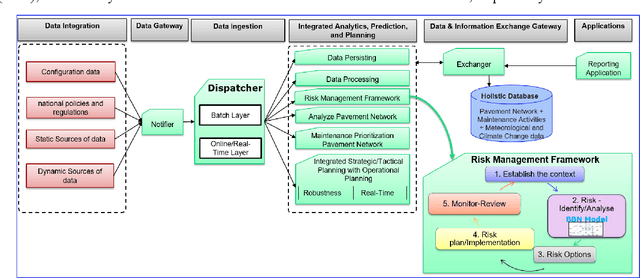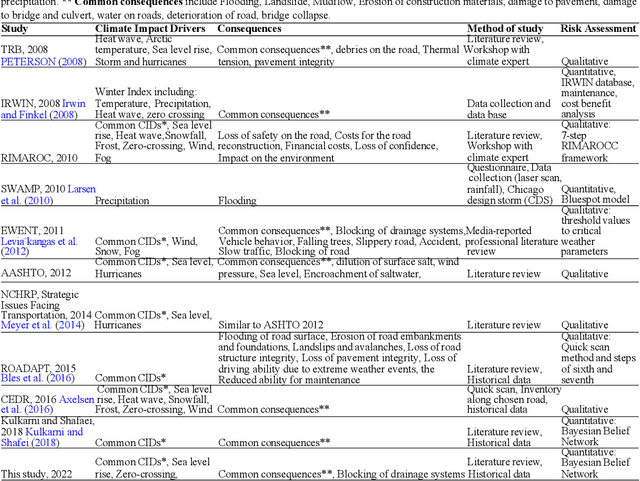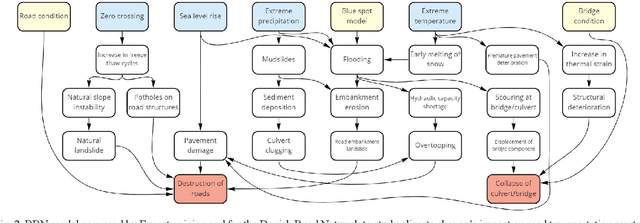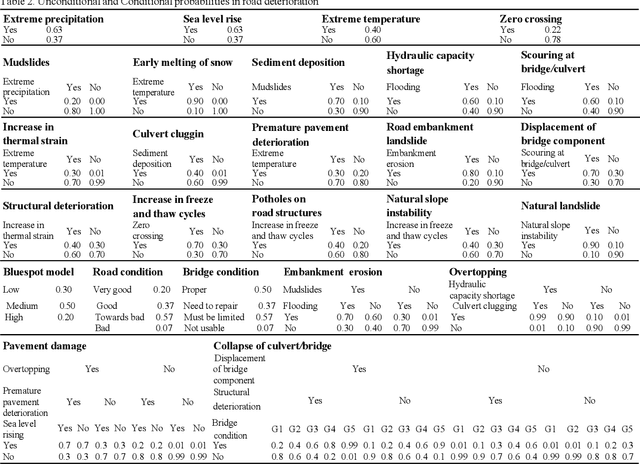Shahrzad Pour
Towards a Technology-Driven Adaptive Decision Support System for Integrated Pavement and Maintenance strategies (TDADSS-IPM): focus on risk assessment framework for climate change adaptation
May 28, 2023



Abstract:Decision Support Systems for pavement and maintenance strategies have traditionally been designed as silos led to local optimum systems. Moreover, since big data usage didn't exist as result of Industry 4.0 as of today, DSSs were not initially designed adaptive to the sources of uncertainties led to rigid decisions. Motivated by the vulnerability of the road assets to the climate phenomena, this paper takes a visionary step towards introducing a Technology-Driven Adaptive Decision Support System for Integrated Pavement and Maintenance activities called TDADSS-IPM. As part of such DSS, a bottom-up risk assessment model is met via Bayesian Belief Networks (BBN) to realize the actual condition of the Danish roads due to weather condition. Such model fills the gaps in the knowledge domain and develops a platform that can be trained over time, and applied in real-time to the actual event.
AI Techniques in the Microservices Life-Cycle: A Survey
May 25, 2023Abstract:Microservices is a popular architectural style for the development of distributed software, with an emphasis on modularity, scalability, and flexibility. Indeed, in microservice systems, functionalities are provided by loosely coupled, small services, each focusing on a specific business capability. Building a system according to the microservices architectural style brings a number of challenges, mainly related to how the different microservices are deployed and coordinated and how they interact. In this paper, we provide a survey about how techniques in the area of Artificial Intelligence have been used to tackle these challenges.
 Add to Chrome
Add to Chrome Add to Firefox
Add to Firefox Add to Edge
Add to Edge